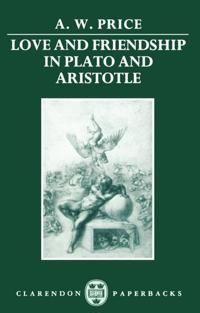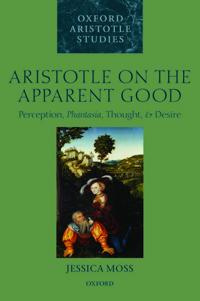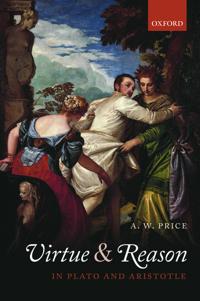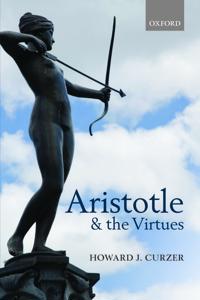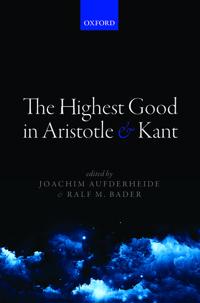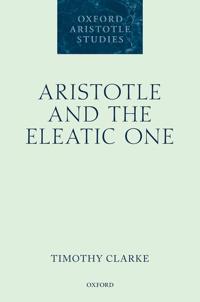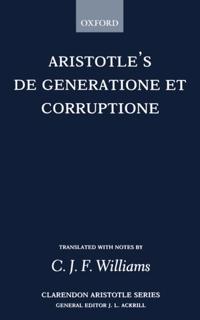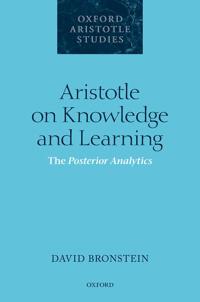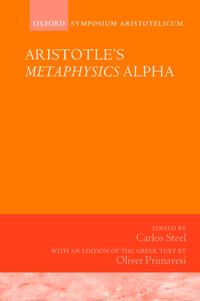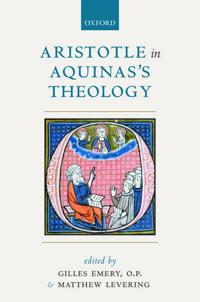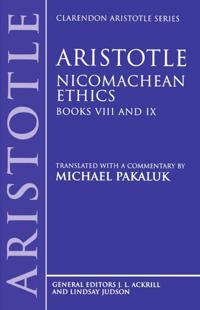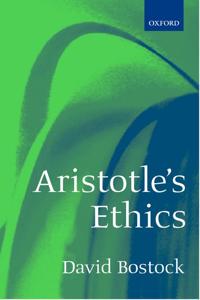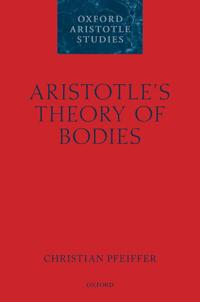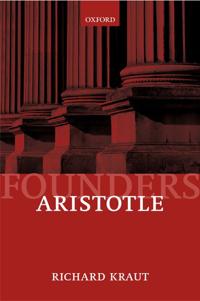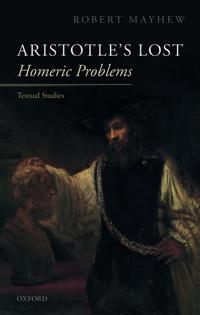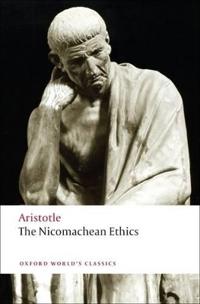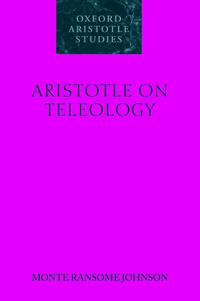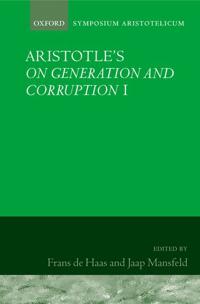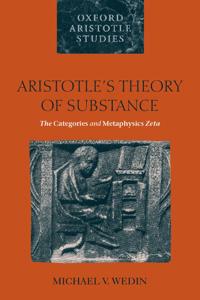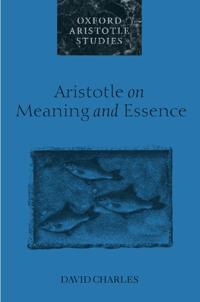Love and Friendship in Plato and Aristotle
ISBN: 9780198248996 - UTGIVEN: 1990-12Reissued in 1997 with corrections and a new Afterword, this book fully explores for the first time an idea common to Plato and Aristotle, which unites their treatments - otherwise very different - of love and friendship. The idea is that although persons are separate, their lives need not be. One pe[...]
Right Practical Reason: Aristotle, Action and Prudence in Aquinas (Inbunden)
avDaniel Westberg
ISBN: 9780198267317 - UTGIVEN: 1994-09-08Aristotle on the Apparent Good
ISBN: 9780198707943 - UTGIVEN: 2014-09Aristotle holds that we desire things because they appear good to us-a view still dominant in philosophy now. But what is it for something to appear good? Why does pleasure in particular tend to appear good, as Aristotle holds? And how do appearances of goodness motivate desire and action? No sustai[...]
Virtue and Reason in Plato and Aristotle
ISBN: 9780198709350 - UTGIVEN: 2015-03In this illuminating study of the moral psychology of Plato and Aristotle, A. W. Price considers four related areas: eudaimonia, or living and acting well, as the ultimate end of action; virtues of character in relation to the emotions, and to one another; practical reasoning, especially from an end[...]
Aristotle and the Virtues
ISBN: 9780198709640 - UTGIVEN: 2015-05Aristotle is the father of virtue ethics-a discipline which is receiving renewed scholarly attention. Yet Aristotle's accounts of the individual virtues remain opaque, for most contemporary commentators of Aristotle's Nicomachean Ethics have focused upon other matters. In contrast, Howard J. Curzer [...]
The Highest Good in Aristotle and Kant (Inbunden)
avJoachim Aufderheide
ISBN: 9780198714019 - UTGIVEN: 2015-05The notion of the highest good used to occupy a primary role in ethical theorising, but has largely disappeared from the contemporary landscape. The notion was central to both Aristotle's and Kant's ethical theories, however-a surprising observation given that their approaches to ethics are commonly[...]
Aristotle and the Eleatic One
ISBN: 9780198719700 - UTGIVEN: 2019-04In this book Timothy Clarke examines Aristotle's response to Eleatic monism, the theory of Parmenides of Elea and his followers that reality is 'one'. Clarke argues that Aristotle interprets the Eleatics as thoroughgoing monists, for whom the pluralistic, changing world of the senses is a mere illus[...]
Aristotle's De Generatione Et Corruptione
ISBN: 9780198720638 - UTGIVEN: 1982-09De Generatione et Corruptione
Aristotle on Knowledge and Learning
ISBN: 9780198724902 - UTGIVEN: 2016-04'All teaching and all intellectual learning come to be from pre-existing knowledge.' So begins Aristotle's Posterior Analytics, one of the most important, and difficult, works in the history of western philosophy. David Bronstein sheds new light on this challenging text by arguing that it is coheren[...]
The Powers of Aristotle's Soul
ISBN: 9780198728993 - UTGIVEN: 2015-08Aristotle is considered by many to be the founder of 'faculty psychology'-the attempt to explain a variety of psychological phenomena by reference to a few inborn capacities. In The Powers of Aristotle's Soul, Thomas Kjeller Johansen investigates his main work on psychology, the De Anima, from this [...]
Aristotle's Metaphysics Alpha
ISBN: 9780198744177 - UTGIVEN: 2015-07The volumes of the 'Symposium Aristotelicum' have become the obligatory reference works for all studies on Aristotle. In this eighteenth volume a distinguished group of scholars offers a chapter-by-chapter study of the first book of Aristotle's Metaphysics. Aristotle presents here his philosophical [...]
Aristotle in Aquinas's Theology
ISBN: 9780198749639 - UTGIVEN: 2015-12Aristotle in Aquinas's Theology explores the role of Aristotelian concepts, principles, and themes in Thomas Aquinas's theology. Each chapter investigates the significance of Aquinas's theological reception of Aristotle in a central theological domain: the Trinity, the angels, soul and body, the Mo[...]
Aristotle Nicomachean Ethics
ISBN: 9780198751045 - UTGIVEN: 1999-04In Books VIII and IX of his masterpiece of moral philosophy, the Nicomachean Ethics, Aristotle gives perhaps the most famous of all philosophical discussions of friendship. Michael Pakaluk presents the first systematic study in English of these books, showing how important Aristotle's treatment of f[...]
Aristotle's Ethics (Pocket)
avDavid Bostock
ISBN: 9780198752653 - UTGIVEN: 2000-12David Bostock presents a fresh critical introduction to one of the great classics of moral philosophy. Aristotle's Nicomachaen Ethics is and deserves to be his most widely studied work, for much of what it has to say is still important for today's debate on the problems of ethics. In this new book[...]
Aristotle's Theory of Bodies
ISBN: 9780198779728 - UTGIVEN: 2018-09Christian Pfeiffer explores an important, but neglected topic in Aristotle's theoretical philosophy: the theory of bodies. A body is a three-dimensionally extended and continuous magnitude bounded by surfaces. This notion is distinct from the notion of a perceptible or physical substance. Substances[...]
Aristotle (Häftad)
avRichard Kraut
ISBN: 9780198782001 - UTGIVEN: 200201This book presents a wide-ranging overview of Aristotle's political thought that makes him come alive as a philosopher who can speak to our own times. Beginning with a critique of subjectivist accounts of well-being, Kraut goes on to assess Aristotle's objective and universalistic account of eudaimo[...]
Aristotle's Lost Homeric Problems
ISBN: 9780198834564 - UTGIVEN: 2019-02This volume takes as its focus an oft-neglected work of ancient philosophy: Aristotle's lost Homeric Problems. The evidence for this lost work consists mostly of 'fragments' surviving in the Homeric scholia - comments in the margins of the medieval manuscripts of the Homeric epics, mostly coming fro[...]
The Nicomachean Ethics (Häftad)
avAristotle
ISBN: 9780199213610 - UTGIVEN: 200906'Happiness, then, is the best, noblest, and most pleasant thing in the world.' In the Nicomachean Ethics Aristotle's guiding question is: what is the best thing for a human being? His answer is happiness, but he means, not something we feel, but rather a specially good kind of life. Happiness is [...]
Aristotle on Teleology (Häftad)
ISBN: 9780199238507 - UTGIVEN: 2008-01Monte Johnson examines the most controversial aspects of Aristiotle's natural philosophy: his teleology. Is teleology about causation or explanation? Does it exclude or obviate mechanism, determinism, or materialism? Is it focused on the good of individual organisms, or is god or man the ultimate en[...]
Aristotle's On Generation and Corruption I Book 1
ISBN: 9780199242924 - UTGIVEN: 2004-07Jaap Mansfeld and Frans de Haas bring together in this volume a distinguished international team of ancient philosophers, presenting a systematic, chapter-by-chapter study of one of the key texts in Aristotle's science and metaphysics: the first book of On Generation and Corruption.In GC I Aristotle[...]
Aristotle
ISBN: 9780199243457 - UTGIVEN: 2016-03The Clarendon Aristotle Series is designed for both students and professionals. It provides accurate translations of selected Aristotelian texts, accompanied by incisive commentaries that focus on philosophical problems and issues, The volumes in the series have been widely welcomed and favourably r[...]
Essays on Plato and Aristotle (Pocket)
avJ. L. Ackrill
ISBN: 9780199244966 - UTGIVEN: 2001-09J. L. Ackrill's work on Plato and Aristotle has had a considerable influence upon ancient philosophical studies in the late twentieth century. In his writings the rigour and clarity of contemporary analytical philosophy are brought to bear upon ancient thought; in many cases he has provided the firs[...]
Aristotle's Theory of Substance
ISBN: 9780199253081 - UTGIVEN: 2002-12Aristotle's views on the fundamental nature of reality are usually taken to be inconsistent. The two main sources for these views are the Categories and the central books of the Metaphysics, particularly book Zeta. In the early theory of the Categories the basic entities of the world are concrete ob[...]
Aristotle's "De Interpretatione": Contradiction and Dialectic (Pocket)
avC.W.A. Whitaker
ISBN: 9780199254194 - UTGIVEN: 2002-09-19Aristotle on Meaning and Essence (Häftad)
avDavid Charles
ISBN: 9780199256730 - UTGIVEN: 200210David Charles presents a major study of Aristotle's views on meaning, essence, and necessity. Aristotle's discussions of these interconnected topics are central to his account of thought and language, his metaphysics, and his study of biology. They are also of continuing philosophical importance, wi[...]

